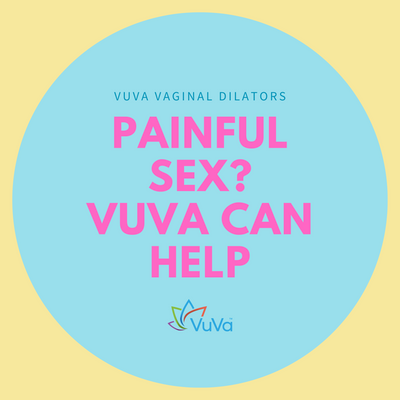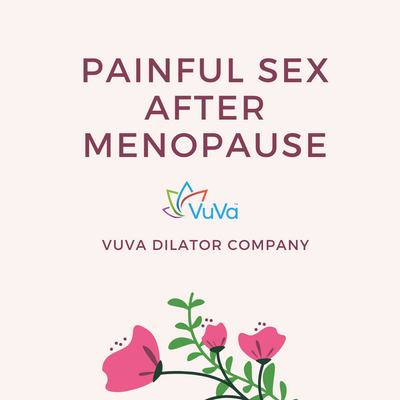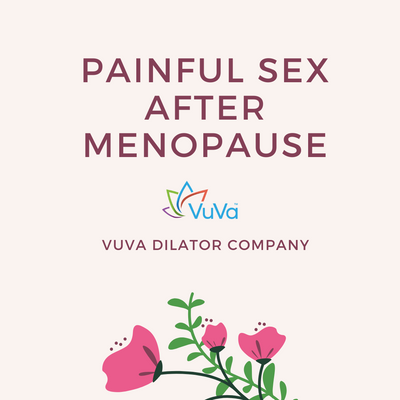
| Tara Langdale
Living with Vaginismus: Coping Strategies and Relationship Advice
Living with vaginismus can be a deeply personal and sometimes isolating experience. The involuntary tightening of vaginal muscles during penetration can affect not only your physical health but also your emotional well-being and intimate relationships. If you or someone you care about is navigating life with vaginismus, know that you are not alone—and that support, healing, and fulfilling intimacy are possible. In this article, we’ll explore practical coping strategies, advice for maintaining healthy relationships, and ways to reclaim confidence and joy.
Understanding Vaginismus and Its Impact
Vaginismus is a condition where the muscles around the vagina tighten up automatically when penetration is attempted, making sex, tampon use, or even medical exams painful or impossible. This reaction is not under your conscious control and can happen even if you want to have sex or use tampons. While vaginismus is a physical condition, its effects ripple through every aspect of life—emotional health, relationships, and self-esteem.
Many people with vaginismus feel frustrated, ashamed, or discouraged. You may wonder if you’ll ever have pain-free sex, worry about disappointing a partner, or avoid gynecological exams altogether. These feelings are normal, but you don’t have to face them alone. With understanding, support, and the right strategies, you can thrive.
Coping with Vaginismus Day-to-Day
1. Practice Self-Compassion
Vaginismus is not your fault. It is a medical condition, not a reflection of your worth, desirability, or strength. Many people blame themselves, feel “broken,” or worry that they’re letting their partner down. Remind yourself that your body is reacting in a way that’s meant to protect you—even if it’s unhelpful right now.
-
Acknowledge Your Feelings: Allow yourself to feel frustration, sadness, or anger without judgment.
-
Challenge Negative Self-Talk: Replace thoughts like “I’m broken” with “I’m working through a medical challenge, and I deserve support.”
-
Celebrate Small Wins: Every step forward, no matter how small, is progress.
2. Focus on Pleasure Beyond Penetration
Sexual intimacy is so much more than penetration. Many people with vaginismus continue to enjoy sexual arousal, pleasure, and orgasm through non-penetrative activities. Exploring new ways to connect can deepen intimacy and reduce pressure.
-
Non-Penetrative Sex: Oral sex, mutual masturbation, sensual massage, kissing, and cuddling can all be deeply satisfying.
-
Experiment Together: Try new forms of touch, fantasy, or erotic play that don’t involve penetration.
-
Communicate Preferences: Let your partner know what feels good and what you’re comfortable with.
3. Learn and Use Relaxation Techniques
Anxiety and muscle tension often go hand in hand. Learning to relax your body and mind can help reduce the automatic muscle contractions associated with vaginismus.
-
Deep Breathing: Practice slow, deep breaths to calm your nervous system.
-
Progressive Muscle Relaxation: Tense and then release different muscle groups to increase body awareness and relaxation.
-
Mindfulness: Stay present in the moment, focusing on sensations rather than worries about pain or performance.
-
Guided Meditation: Use apps or online resources for relaxation and visualization exercises.
4. Seek Professional Support
You don’t have to navigate vaginismus alone. Professional support can make a world of difference.
-
Sex Therapy or Counseling: A therapist can help you address anxiety, past trauma, and relationship concerns.
-
Pelvic Floor Physical Therapy: A specialist can teach you exercises to relax and control your pelvic muscles.
-
Support Groups: Connecting with others who understand your experience can reduce isolation and provide valuable tips.
5. Advocate for Your Medical Care
Routine gynecological exams are important for your health, but they can be intimidating or painful with vaginismus. Advocate for yourself with healthcare providers.
-
Communicate Your Needs: Let your provider know about your condition and concerns before the exam.
-
Request Accommodations: Ask for a gentle approach, smaller speculums, or topical numbing creams if needed.
-
Bring Support: Take a trusted friend or partner with you for comfort.
-
Reschedule if Needed: If you’re not ready, it’s okay to postpone the exam and focus on treatment first.
Navigating Relationships with Vaginismus
Vaginismus can affect relationships, but it doesn’t have to define them. Open communication, empathy, and teamwork are key to maintaining intimacy and trust.
1. Communicate Openly and Honestly
Talking about vaginismus with your partner can be intimidating, but it’s essential for understanding and support.
-
Share Your Experience: Explain what vaginismus is, how it affects you, and what you’re feeling.
-
Express Your Needs: Let your partner know what kind of support you need—emotional, physical, or both.
-
Be Honest About Fears: If you’re scared, anxious, or frustrated, share those feelings. Vulnerability can bring you closer.
2. Involve Your Partner in Treatment
If you feel comfortable, include your partner in therapy sessions, physical therapy, or at-home exercises. This can help them understand your journey and feel more connected.
-
Attend Sessions Together: Many therapists welcome partners in counseling or sex therapy.
-
Practice Exercises as a Team: Some pelvic floor exercises or relaxation techniques can be done together.
-
Set Shared Goals: Work together toward milestones, such as pain-free touch or increased intimacy.
3. Redefine Intimacy
Penetration is just one aspect of intimacy. Focus on connection, pleasure, and trust in all their forms.
-
Explore New Ways to Connect: Emotional intimacy, shared hobbies, and non-sexual affection all strengthen relationships.
-
Celebrate All Forms of Pleasure: Every moment of closeness, laughter, or shared joy is meaningful.
-
Let Go of Timelines: Healing from vaginismus is a journey, not a race. Move at a pace that feels right for both of you.
4. Be Patient with Each Other
Healing takes time, and setbacks are normal. Patience, empathy, and encouragement are vital.
-
Avoid Blame: Vaginismus is no one’s fault—not yours or your partner’s.
-
Support Each Other: Offer reassurance, listen without judgment, and celebrate progress together.
-
Seek Help if Needed: If frustration or resentment builds, consider couples counseling for additional support.
Addressing Common Concerns
Will I Ever Have Pain-Free Sex?
Many people with vaginismus go on to have comfortable, enjoyable sex after treatment. Recovery is possible, especially when you address both the physical and emotional aspects of the condition. Be patient with yourself and trust the process.
How Do I Handle Feelings of Shame or Guilt?
Shame and guilt are common but undeserved. Vaginismus is a medical condition, not a personal failure. Remind yourself that you deserve pleasure, intimacy, and support—just like anyone else.
What If My Partner Doesn’t Understand?
Education can help. Share articles, medical information, or invite them to a therapy session. If your partner is unwilling to support you, consider seeking guidance from a counselor about your relationship needs.
Can I Get Pregnant with Vaginismus?
Vaginismus can make vaginal penetration difficult, which may affect conception. However, many people do become pregnant after treatment or with the help of assisted reproductive technologies. Discuss your goals with your healthcare provider.
Practical Tips for Everyday Life
1. Journaling
Writing about your experiences, feelings, and progress can help you process emotions and track improvement.
2. Setting Boundaries
It’s okay to say no to activities that cause pain or anxiety. Your comfort and well-being come first.
3. Self-Care
Prioritize activities that nurture your body and mind, such as exercise, healthy eating, rest, and hobbies you enjoy.
4. Educate Yourself
Knowledge is empowering. Learn about vaginismus, anatomy, and treatment options so you can make informed decisions.
5. Celebrate Progress
Acknowledge every milestone, whether it’s increased comfort with touch, a positive therapy session, or improved communication with your partner.
Finding Community and Support
You are not alone. Many people experience vaginismus, even though it’s rarely discussed openly. Seek out support groups, online forums, or social media communities where you can share experiences, ask questions, and find encouragement.
-
Online Forums: Many reputable sexual health organizations host forums for people with vaginismus.
-
Local Support Groups: Ask your healthcare provider or therapist about groups in your area.
-
Educational Resources: Look for information from trusted sources to stay informed and inspired.
When to Seek Additional Help
If vaginismus is affecting your mental health, self-esteem, or relationship, don’t hesitate to reach out for professional help. Signs you may benefit from extra support include:
-
Persistent feelings of sadness, anxiety, or hopelessness
-
Difficulty functioning at work, school, or in daily life
-
Increased conflict or distance in your relationship
-
Avoidance of all sexual or intimate contact
Therapists, counselors, and sexual health specialists are trained to help you navigate these challenges.
Final Thoughts: Reclaiming Confidence and Joy
Living with vaginismus can be challenging, but it does not define you. With the right strategies, support, and self-compassion, you can reclaim your confidence, intimacy, and joy. Remember:
-
You are not alone. Many people have walked this path and found healing.
-
You are worthy of pleasure and connection. Vaginismus does not diminish your right to love and be loved.
-
You can heal. With patience, persistence, and the right help, pain-free intimacy is possible.
If you’re ready to take the next step, reach out to a healthcare provider, therapist, or support group. Your journey is unique, and every step forward is something to be proud of.
If you have questions, need advice, or want to share your story, consider connecting with a sexual health specialist or joining a supportive community. You deserve understanding, care, and the chance to live fully and joyfully.
VuVa Magnetic Dilators are specially designed devices that can assist people managing vaginismus by providing gentle, progressive stretching of the vaginal muscles in a safe and controlled way. What sets VuVa dilators apart is their embedded medical-grade magnets, which are intended to promote increased blood flow and help relax the pelvic floor muscles during use. By combining gradual dilation with the potential therapeutic benefits of magnetic fields, VuVa Dilators may help reduce discomfort, decrease muscle tension, and support the body’s natural healing processes. Used regularly as part of a treatment plan—often alongside guidance from a healthcare professional—VuVa Magnetic Dilators can empower individuals to regain comfort and confidence with vaginal penetration.













